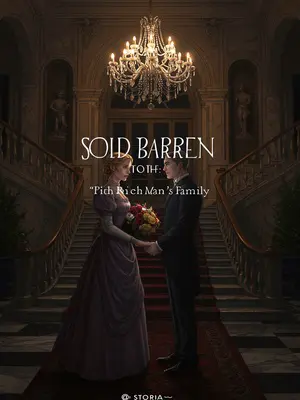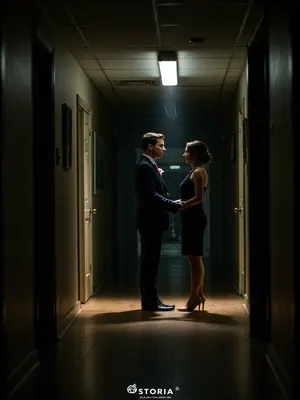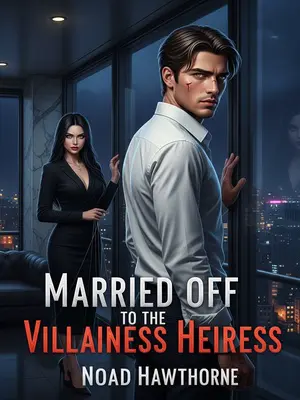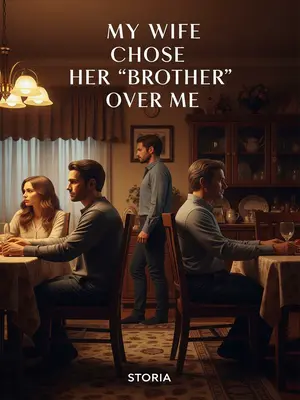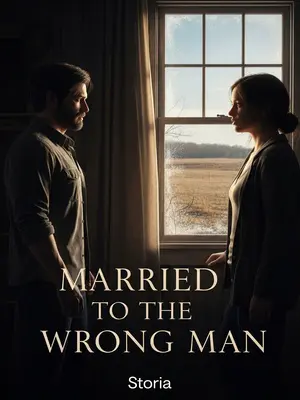Chapter 1: The President’s Lie and the Lottery Groom
When the envoys from the three rival nations stood in the grand hall and proposed a marriage alliance, Dad flashed them a grin that practically begged for a punch. "Sorry, but I only have one daughter—and she’s already married."
The room went dead quiet. Marble floors echoed every little shuffle. You could hear a pin drop. Dad’s grin was pure poker face—smug as hell, like he’d just laid down a royal flush and dared anyone to call his bluff. The chandelier overhead flickered—like even the lights wanted in on the joke. The envoys’ faces soured, and for a second, it felt like we were one dirty look away from an international incident.
The envoys froze, faces tight with disbelief, then one of them actually scoffed, "You expect us to believe that?" A ripple of muttering followed, the air bristling with accusation and frustration.
They traded glances, lips curling in open disbelief. You could practically see the gears grinding in their heads—calculating, doubting, scrambling for leverage. Classic. One muttered something sharp in his own language, probably a curse. The tension pressed down on us, thick as fog in a D.C. summer—heavy, humid, and impossible to ignore.
I mean, when they boarded their flights, everyone knew I was single. There was no secret—when they left home, the President’s daughter wasn’t married yet.
Everyone in D.C. was in on my relationship status. The press, the cabinet, the White House chef—heck, even the First Dog—knew I was single as of last week. So, the envoys had every reason to be suspicious. I mean, who wouldn’t be?
Dad just shrugged, smug as ever. "She got married yesterday."
He leaned back, swirling his glass of bourbon like he’d just closed a billion-dollar deal. The glint in his eye said he was soaking up every second of their confusion. Honestly, sometimes I think he lives for this kind of drama. I watched him, half-exasperated, half-impressed.
Grant’s jaw worked, like he was chewing on a lemon. "The President’s daughter is married? Why wasn’t I notified…?"
Grant’s voice was tight, strained politeness barely covering a storm. His knuckles whitened around his wine glass. For a second, I almost felt bad for him. Almost. But not quite.
For once, Dad actually looked sheepish as he glanced at Ambassador Grant.
He shifted in his seat, some of that bravado slipping. For a heartbeat, Dad’s eyes darted away—like a kid caught red-handed. Even the staff seemed to freeze, picking up on the awkward beat. I had to smother a smile.
I’m the only kid in the White House—grew up with Secret Service at my birthday parties and White House bowling alley sleepovers. But when it came to my marriage, the whole thing—from engagement to wedding—was over in three days flat.
Three days—can you believe it? I’d had birthday parties that lasted longer than my entire engagement. One minute I was picking out dresses for the spring gala, the next I was being measured for a wedding gown I barely recognized. Wild.
Why? Because Dad got wind that envoys from the three biggest countries were coming, all angling for a marriage alliance. To keep me off the bargaining table, Dad whipped up this ridiculous plan. Even the groom was picked at random—by me, no less.
He’d called it a "strategic necessity." I called it a panic move. The whole thing felt like a high-stakes lottery—except instead of winning cash, I won a husband. At least the snacks were good.
On the wedding day, Dad held my hand and wouldn’t stop fussing. He kept hovering, straightening my dress, fixing imaginary flyaways, muttering under his breath. I barely had a moment to breathe.
He kept straightening my veil, smoothing my hair, and muttering, "Rosalie, you lucked out, kiddo. Drew the valedictorian’s name and all. Just remember, it’s temporary—don’t go falling for him."
He said it with a wink, but his voice cracked at the end. Dad always tried to sound tough, but when it came to me, his soft spot showed through like a neon sign. For a second, I thought he might cry. I almost did too.
I sighed, dragging out the breath. "Dad, you’ve said that, like, a hundred times." Honestly, I could recite his warnings in my sleep.
I rolled my eyes, but inside, I was touched. He could be overbearing, but he meant well. Sometimes, his love felt like a bear hug you couldn’t escape.
He didn’t just say it—he sent housekeepers, old family friends, and even a couple of Secret Service agents to watch over me. He treated the new valedictorian’s house like it was crawling with wolves, and I was Little Red.
Every time I turned around, there was someone in a suit lurking in the hallway. The neighbors probably thought we were filming a spy movie. Mrs. Abernathy from next door started baking extra cookies for the "nice men in sunglasses"—her chocolate chips were legendary.
"Since your mom’s been gone, I only have you, my girl. Now that you’re married, how’s your old man supposed to get by?"
He said it quietly, his voice trembling just enough that I almost hugged him right there. When Dad talked about Mom, the whole room seemed to hold its breath. I wondered if he saw her in me—her laugh, her stubborn streak, her way of never backing down.
I glanced at my three brothers by the door. They always hovered, but I knew they cared. If they didn’t dote on me almost as much as Dad, they’d probably resent how much he spoiled me.
The boys stood there like a defensive line, each trying to look tougher than the last. I caught their eyes and shot them a little smirk. If it weren’t for their soft spot for me, family dinners would probably end in wrestling matches. No joke.
"Dad, the Carter house is right here in D.C. I can come home whenever I want."
I tried to sound reassuring, but Dad just grumbled. The Carter house was barely twenty minutes away, straight down Massachusetts Avenue. If I squinted, I could spot the top of the Washington Monument from their mailbox.
My oldest brother, the Governor, crossed his arms, looking annoyed. "Don’t you get it, Rosie? Dad just doesn’t like Carter as a son-in-law, even if it’s just for show."
He always had that political edge, even at home—like he was filibustering at the dinner table. His tie was still perfectly knotted, not a hair out of place. I shot him a look that said, "Thanks for the vote of confidence."
My second brother, an Army colonel, ran a hand over his crew cut, his scowl dark as thunder. "If you ask me, I should just send the guys over there. Why should Rosalie be stuck with this?"
He’d always been the protective type—the kind who’d show up at your prom just to "check on things." With hands big enough to palm a basketball, he looked like he could bench-press Carter without breaking a sweat. Honestly? Wouldn’t put it past him.
My youngest brother, usually so charming, actually lost his cool. "I was gone for a few days and you couldn’t even look after her?"
Normally he’d be the family peacemaker, cracking jokes, smoothing things over. But now, his jaw was set and his eyes narrowed. Clearly, he hated being left out—especially when it came to me.
Dad slammed the table and pointed at my brothers. "Enough! Carter was picked by lot. If you don’t like him, why didn’t you pick someone? All you do is argue—argue, argue, argue! That’s what these other countries are doing! Never mind if we could win—war would bleed people dry. And you—if you’re so smart, where’s your solution?"
His voice boomed through the room, rattling the china. We all froze, just like when we were kids. For a second, it was like the whole world shrank to that dining room and Dad’s lecture.
Three grown men, all suddenly twelve years old again, went quiet, heads down. No one dared look up.
It was kind of funny, seeing the three of them—one in a suit, one in uniform, one in a designer jacket—all looking like they’d been sent to the principal’s office. I almost wanted to snap a photo for Mom’s old scrapbook. Maybe I would next time.
Dad muttered, "If Grant were here, Carter wouldn’t even be a footnote…"




